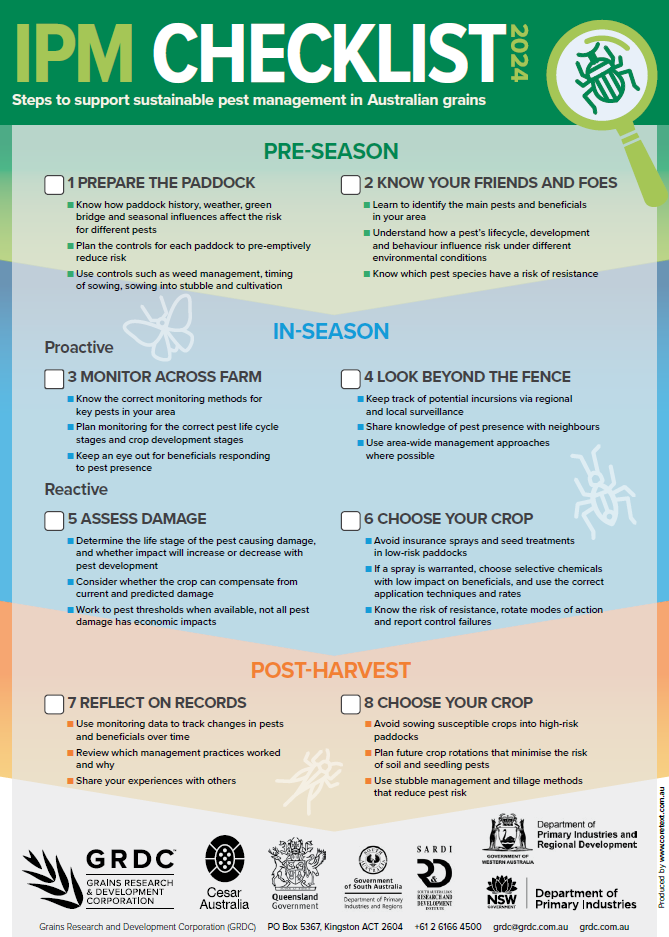IPMforGrains, delivered by the National Pest Information Network
Investment
IPMforGrains, delivered by the National Pest Information Network
Central to this project is the collection of reports of pests and beneficial invertebrates from our networks and our local field investigations. We enter all pest occurrences into the relevant databases and share regionally relevant information with the grains industry via articles, newsletters, and novel communication strategies such as podcasts. Each partner also delivers training workshops and webinars across Australian grain growing regions. Additional services provided through this project include the provision of invertebrate (and plant disease for WA) identification services and advice, information delivery through a range of strategies, the use and maintenance of databases for reporting, the delivery of training and the generation of reports for the GRDC. Project partners also conduct field investigations and surveillance in their regions in response to seasonal outbreaks, or emerging pest occurrences.
- Project start date:
- 01/04/2022
- Project end date:
- 30/04/2024
- Crop type:
-
- All Crops
- Organisation
- CESAR Pty. Ltd
- Region:
- North, South, West
- Project status
-
Completed
GRDC News
The pest control balancing act
12 Dec 2024
A comprehensive step-by-step guide to sustainable pest management throughout the crop growing season is now...
Five-year investment delivers enhanced biosecurity capability
05 Dec 2024
A comprehensive step-by-step guide to sustainable pest management throughout the crop growing season is now...
IPM Checklist: a step-by-step guide for a...
12 Nov 2023
New GRDC IPM Checklist: Step-by-Step Sustainable Pest Management Guide for Australian Grain Industry, Aligning with...
Pests in the spotlight as cropping gets...
03 Apr 2023
Crop protection research scientists have issued advice for Western Australian grain growers on key invertebrate...
Update papers
- 04 Mar 2024, Want fewer sprays? Insecticide impacts on beneficial insects in broadacre field crops and integration of natural enemies into management strategies. - GRDC
- 28 Feb 2024, Emerging aphid management issues – Russian wheat aphid distribution in northern NSW and management options for faba bean aphid - GRDC
- 21 Feb 2023, Aphids in faba beans - an update with a review of management strategies of faba bean aphid - GRDC
Resources

IPM checklist - GRDC
The IPM checklist provides grain growers with steps to support sustainable pest management in their crops. It provides an overview of IPM (integrated pest management) practices and highlights which activities to focus on during different stages of
